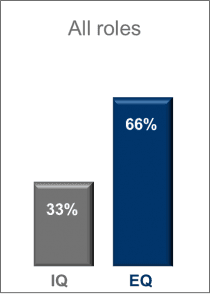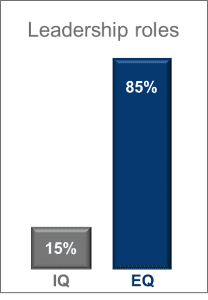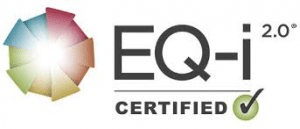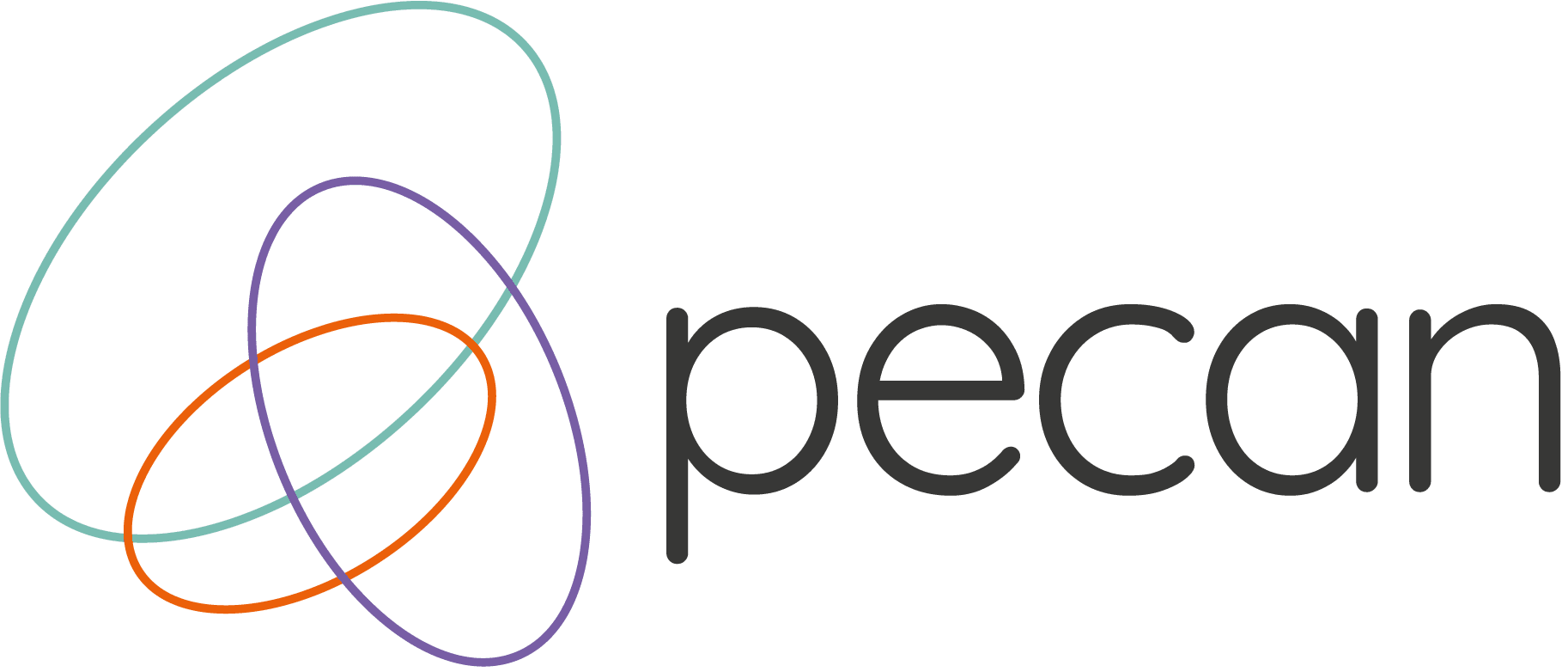
When emotional intelligence is more important than IQ
Do you recognise any of these challenges in your organisation?
- high levels of uncertainty are causing stress for many people
- people and processes are struggling to keep up with changing student/ customer needs
- bottle-necks at the ‘top’ of the organisation prevent sound student/customer-focused decision making
If you’re a leader with years of experience behind you and you’ve tackled many business challenges before, these may sound like more problems you can just think your way through.
Yet research from back in the 1980’s by Reuven Bar-On, right through Daniel Goleman in the 2000’s and onto today’s behavioural scientists such as Dr Steve Peters, have found that a large percentage of job success comes from having high levels of emotional intelligence (EQ, or EI) rather than cognitive intelligence.
In high change environments, this becomes even more important and especially in leadership roles:


Goleman describes how Johnson and Johnson, for example, found that in divisions around the world, those identified at mid-career as having high leadership potential were far stronger in EQ competencies than were their less-promising peers.
In the worlds of higher education, engineering, technology, typically filled with highly intelligent people, we have found that strengthening EQ becomes even more critical.
Reconsider those earlier challenges and the solutions are heavily centred around exercising your EQ:
- high levels of uncertainty >> showing you care about employee’s wellbeing
- changing customer needs >> adapt and respond through building strong and trusting relationships
- bottle necks at the ‘top’ >> get high-quality decision making as close to customers as possible
So, what is EQ and why is it so important in times of change and uncertainty?
The capacity for recognising our own feelings and those of others … for motivating ourselves and managing emotions well in ourselves and in our relationships. Daniel Goleman
When you read this description it becomes clear why emotional intelligence is so important to the way we cope with stress, our ability to build strong relationships and our confidence in making good decisions under pressure and without the certainty of facts and figure that we might have relied on in the past.
To break it down in simple terms, it’s about:
Step 1: Having good awareness of one’s own values, motivations, emotions and the impact these have on our own behaviours and on other people
Step 2: Having good awareness of others, and noticing how they may be similar or different to ourselves
Step 3: Having the ability to flex what we’re doing and how we’re doing it, in response to that awareness, to create relationships that achieve the best possible results
As organisations increasingly go through significant change and/or grow at great pace, leadership teams require huge self-awareness, awareness of others and personal adaptability. When others are demonstrating fear, confusion, reluctance or even apathy, this ability is invaluable to create a shift in the right direction.
And here’s the good news
The best news is that emotional intelligence can be developed throughout life, unlike IQ, which is deemed to be near enough pre-destined from birth or even earlier. At Pecan, we offer both individual and team coaching programmes, each designed to raise EQ, shift unhelpful behaviours, and move the team or individual forwards. Why not try a taste of EQ by taking the EQi 2.0 assessment with us and having a coaching debrief with one of our team.
Read how some of our clients are already benefiting from our programmes:
“I have benefited enormously from Pecan executive coaching. My coach provided me with the safe space to work through the challenges of the role, and how I could set about creating a high performing senior leadership team. She assisted me with analysing where the crunch points were and strategies for dealing with them. Above all, my coaching experience gave me confidence – a confidence I never thought I would have – and brought out many inner strengths and skills that had lain dormant for years.” (University Vice-Chancellor)
One team coaching client said:
“Thank you for everything this year, your impact has really come to light through this VR process, it would have been much more painful for everyone if we had not implemented (somewhat unconsciously too) what we have learnt so far. We’ve had such positive feedback about the process – we actually did it in an emotionally intelligent way!” (Not For Profit Membership Organisation)
For more information contact us on 01280 824 508 or at https://pecanpartnership.co.uk/#getintouch
Image: Debby Hudson, unsplash.com

